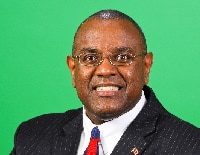Commonwealth commends St. Kitts and Nevis Electoral Commission
BASSETERRE, St. Kitts – The Commonwealth Observer Team that monitored the January 25th general election in St. Kitts and Nevis is commending the Electoral Commission for the use of the National Identification Card and the Photo List in the polling stations.
“This was a considerable asset to the polling process and served to allay most of the fears from previous elections about multiple voting and personation,” said the Report released by Commonwealth Secretary-General Kamalesh Sharma on Friday. Advanced copies of the 33-page Report were received by the Office of the Prime Minister prior to public release.
The Commonwealth Team reported that a great majority of voters were in possession of their identity card and the few that were not, confirmed their identity by showing other photographic identification such as a passport or driver’s license.
“Voters’ lists at each polling station were usually, but not invariably, displayed outside the polling station which also contributed to facilitating the process of identification,” said the Report.
The Commonwealth Team, headed by former Foreign Minister and the Opposition Spokesperson for Foreign Affairs in New Zealand, the Hon. Chris Carter in its report noted that the Team heard concerns from opposition party commentators and some voters about the indelible ink used to prevent multiple voting – as it appeared to wipe off easily.
“The Team’s observations (and in the case of one Team member, personal testing) revealed that the ink did in fact deepen in colour following its attempted removal, and the Team was satisfied with the performance of the ink,” said the Report.
It noted there were no violent or serious incidents observed during the poll, aside from a report of a person apprehended for photographing her ballot with a mobile phone, and the disagreement among party supporters relating to the registration of certain voters mentioned above at one polling station, which was contained peacefully by police and security forces.
“The main concern was in three constituencies where the number of voters allocated to certain polling stations was too many and this caused great agitation by voters who had turned out early to exercise their franchise and had to wait up to five hours in a long queue. The situation was further compounded by the fact that it was raining for a great part of the day. It was apparent that this problem could have been averted with better distribution of voters and staff between polling stations, or additional resources within the largest ones,” said the Report.
The Report said that the Team noted in particular that while this problem was going on, some polling stations nearby were virtually empty.
“The Team commends voters in the polling stations in question for maintaining a peaceful demeanour despite their frustration, and notes that all voters in line by 6.00 pm were able to exercise their franchise.
The Commonwealth Team said it was overwhelmed by the observation that the secrecy of the ballot was satisfactorily observed.
“In one polling station, it was observed that the number placed in the Poll Book was the number of the counterfoil of the ballot rather than the consecutive number of voters. This could breach voter secrecy and was an apparently isolated incident of a poorly trained and supervised polling clerk. The Team also observed that the process for assisted voting allowed the ballot paper to be marked in the open by the Presiding Officer in the presence of the polling agents, which the Team recognises is in accordance with law but is necessarily a secrecy concern, since in many cases the voter’s choice was audible to an entire queue of waiting voters,” the Commonwealth Report said.
Regarding the count, the Commonwealth Team noted that the box from each polling station was collected by the Returning Officer when he/she was informed that the voting was over and the box was sealed and ready for collection.
“The box was conveyed under police escort and also accompanied by party agents to the Counting Centre. The delivery was both safe and secure and not open to any malign interference,” said the Report.
It noted that at the Counting Centre, each box was opened in numerical order in the presence of the party agents, and each ballot unfolded, held up to the party agents, the selected candidate’s name announced and the ballot paper pierced into a wire stand, one for each candidate. This procedure proved to be exceedingly slow, and in a couple of cases, one in St. Kitts and one in Nevis, the constituency result was not announced until after 8 am the next day. In the Nevis case, the constituency concerned had only 4,295 registered voters, which makes the delay all the more unacceptable in public perception.
In the Counting Centres observed by the Team, as in the polling stations, both the Returning Officer and the tally clerks were diligent, efficient, and impartial.
“A friendly atmosphere between the election officials and the party agents prevailed. There was a police presence available to the election officials at the Counting Centre at all times. In some of the Counting Centres observed by the Team, there were recounts requested by the party agents. In one case the party agents themselves recounted the ballots. It was not clear whether this was within the rules, but the recount did allow consensus to be reached,” said the Report.
Contrary to the experience of the 2004 Commonwealth Expert Team, there was no frivolous rejection of ballot papers on the grounds that the pencil mark had touched the edge of the box or for any other reason in cases where the intention of the voter was abundantly clear.
“This was an important improvement and the approach of the Returning Officers, along with the willingness of the party agents to accept it, should be commended,” said the Report.

